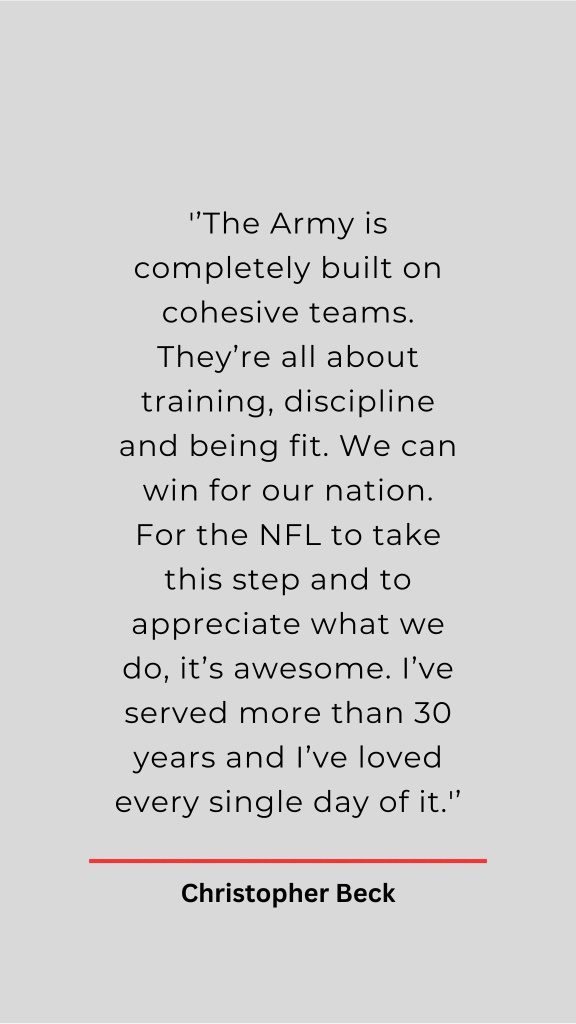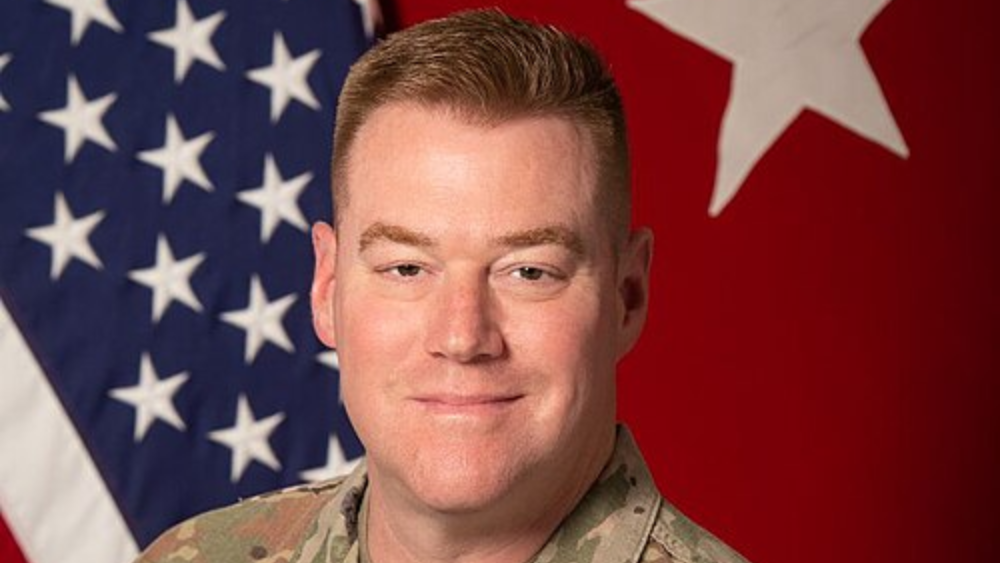Christopher Beck, a name once known primarily in military circles, catapulted into national headlines for reasons far beyond the battlefield. As a former member of the elite SEAL Team Six, Beck served his country with distinction through 13 deployments, including seven combat tours. But it wasn’t just his bravery on the front lines that garnered attention — it was his deeply personal journey after retiring from the military that sparked nationwide discussion about identity, transition, and the true cost of war.
This blog dives into the multifaceted story of Christopher Beck — from his decorated military service to the public eye and back into introspection, highlighting the complexities of post-war life and personal transformation.
Early Life and Military Ambition
Born in 1966 in Long Island, New York, and raised in the suburbs of Virginia, Christopher Beck came from a traditional American background. Even in his youth, he demonstrated a drive for service and physical endurance, often challenging himself physically and mentally — qualities that would later define his military career.
Beck enrolled in the U.S. Navy and quickly rose through the ranks. His discipline, skill, and leadership made him a natural fit for the Navy SEALs, the United States’ most elite special operations force. After completing the notoriously grueling Basic Underwater Demolition/SEAL (BUD/S) training, Beck joined the ranks of the SEALs — a rare and proud achievement.
SEAL Team Six: The Pinnacle of Special Forces
Christopher Beck’s service included membership in SEAL Team Six, also known as DEVGRU (Development Group), one of the most secretive and high-stakes units in the U.S. military. SEAL Team Six is known for counterterrorism missions, hostage rescue, and direct action operations — many of which remain classified.
Beck completed 13 deployments, including combat operations in Iraq, Afghanistan, and other undisclosed locations. His role was not only as an operator but also as a leader in missions that required precise execution, nerves of steel, and unshakable loyalty to his team.
During his military career, Beck received numerous awards and commendations, including the Bronze Star with Valor, Purple Heart, and other military honors recognizing bravery and sacrifice.
Life After the Military: A Personal and Public Transition
After two decades of high-stress military service, Beck retired in 2011. But his most transformative and controversial journey was just beginning.
In 2013, Beck made headlines when he publicly came out as a transgender woman named Kristin Beck. His announcement was groundbreaking — he became one of the most high-profile Veterans to speak openly about gender identity. His 2013 memoir, “Warrior Princess: A U.S. Navy SEAL’s Journey to Coming Out Transgender,” co-authored with Anne Speckhard, chronicled his life in the military and his struggle with gender dysphoria, which he said he had experienced since childhood.
The story received widespread media attention. Christopher Beck appeared on major news outlets like CNN and gave interviews discussing gender identity, military service, and post-war struggles. The public reaction was mixed: some lauded his bravery for living authentically, while others criticized or questioned the announcement.
Beck became an advocate for transgender rights and spoke openly about the need for acceptance, mental health support, and reform in both the military and civilian systems. He also addressed the challenges faced by LGBTQ+ service members and Veterans navigating outdated policies and cultural resistance.
Struggles with Identity, Mental Health, and the Cost of War
Beneath the headlines, Beck’s story also revealed deeper issues many Veterans face after leaving the service: trauma, PTSD, and mental health crises. Like many combat Veterans, Beck struggled with the transition to civilian life, including finding purpose outside of the structure and intensity of military service.
The decision to transition, as Beck later explained, was influenced by years of internal confusion, compounded by the effects of combat-related trauma. His post-military years involved public speaking engagements, documentaries, and advocacy work — yet underneath it all, Beck continued to wrestle with unresolved psychological wounds.
In interviews, Christopher Beck spoke about the emotional toll of war, survivor’s guilt, the struggle for self-acceptance, and the intense pressure that comes with being in the national spotlight. These are challenges many Veterans face silently, often without adequate mental health resources.
A Change in Perspective: 2022 and Beyond
In a stunning development in late 2022, Beck announced he was detransitioning, stating that he had changed his views on gender identity and had returned to identifying as male. He also criticized the medical and psychological communities for what he described as pushing him toward hormone therapy and transition without adequate psychological evaluation.
Beck appeared on conservative media platforms, including podcasts and interviews, where he expressed regret about his decision to transition and warned others about what he described as a growing ideological influence in gender medicine.
This reversal stirred a new wave of controversy and conversation. Critics argued that Beck’s new stance risked delegitimizing the experiences of other transgender individuals and could be weaponized by groups opposing transgender rights. Supporters, meanwhile, praised his courage to speak out about what they saw as the dangers of hasty medical transition practices.
Whether one agrees or disagrees with Beck’s changing views, it’s clear that his journey underscores the need for thoughtful, individualised mental health care, particularly for Veterans experiencing identity-related distress and PTSD.
Lessons from Beck’s Journey
Christopher Beck’s story is not easy to categorize. It’s filled with honor, courage, conflict, and pain. Whether viewed as a war hero, a transgender pioneer, or a cautionary tale, Beck represents the human side of military service, beyond the medals and missions.
Here are several key takeaways from Beck’s life:
1. The Invisible Wounds of War Are Real
Despite appearing physically strong and composed, many Veterans carry hidden psychological scars. Beck’s story illustrates how even the most elite soldiers can suffer deeply and silently.
2. Mental Health Must Be a Priority
From PTSD to identity confusion, mental health should be central to post-military care. Beck’s shifting perspectives show the complex interplay between trauma, identity, and healing. Veterans need access to empathetic, unbiased, and comprehensive care.
3. Transitioning is Not One-Size-Fits-All
Beck’s detransition doesn’t invalidate the experiences of those who transition, but it highlights the importance of proper psychological evaluation, long-term support, and personalized care plans, not just immediate medical interventions.
4. Society Must Embrace Nuance
The public often seeks clear heroes or villains, but Christopher Beck’s life defies easy categorization. His legacy challenges us to hold space for complexity, compassion, and contradiction.

Christopher Beck’s Impact on Veterans and the Public
Despite the turbulence of his post-military years, Beck’s story has had a significant impact on how we discuss gender identity, Veteran mental health, and the consequences of modern warfare.
Through his book, public speaking, and media appearances, he’s helped spark national conversations about the intersection of trauma, identity, and healing. Even his detransition and the controversy surrounding it have brought attention to flaws in the system and the need for better standards in mental health treatment.
Many Veterans have cited Beck’s openness — both in transitioning and detransitioning — as a reason they’ve sought therapy, started conversations about identity, or advocated for better support networks in the VA system.
Whether seen as inspirational, tragic, or cautionary, Beck has helped break taboos around military stoicism, mental health stigma, and the pressure to conform.
Final Thoughts: The Man Behind the Story
Christopher Beck’s journey is not over. Like many Veterans, he continues to navigate the path to peace and purpose after decades of service and personal upheaval.
His story forces us to reconsider how we define strength. Is it found in a battlefield victory or the quiet decision to ask for help? Is it more courageous to storm an enemy compound or to admit confusion and seek truth?
There are no simple answers. But Beck’s life reminds us that our heroes are human — deeply flawed, deeply resilient, and constantly evolving.











